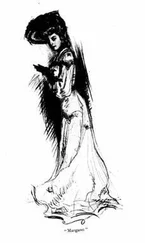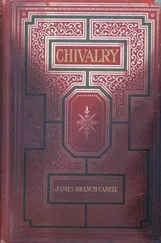James Cabell - The Line of Love. Dizain des Mariages
Здесь есть возможность читать онлайн «James Cabell - The Line of Love. Dizain des Mariages» весь текст электронной книги совершенно бесплатно (целиком полную версию без сокращений). В некоторых случаях можно слушать аудио, скачать через торрент в формате fb2 и присутствует краткое содержание. Жанр: Фэнтези, на английском языке. Описание произведения, (предисловие) а так же отзывы посетителей доступны на портале библиотеки ЛибКат.
- Название:The Line of Love. Dizain des Mariages
- Автор:
- Жанр:
- Год:неизвестен
- ISBN:нет данных
- Рейтинг книги:5 / 5. Голосов: 1
-
Избранное:Добавить в избранное
- Отзывы:
-
Ваша оценка:
- 100
- 1
- 2
- 3
- 4
- 5
The Line of Love. Dizain des Mariages: краткое содержание, описание и аннотация
Предлагаем к чтению аннотацию, описание, краткое содержание или предисловие (зависит от того, что написал сам автор книги «The Line of Love. Dizain des Mariages»). Если вы не нашли необходимую информацию о книге — напишите в комментариях, мы постараемся отыскать её.
The Line of Love. Dizain des Mariages — читать онлайн бесплатно полную книгу (весь текст) целиком
Ниже представлен текст книги, разбитый по страницам. Система сохранения места последней прочитанной страницы, позволяет с удобством читать онлайн бесплатно книгу «The Line of Love. Dizain des Mariages», без необходимости каждый раз заново искать на чём Вы остановились. Поставьте закладку, и сможете в любой момент перейти на страницу, на которой закончили чтение.
Интервал:
Закладка:
4. Youth Solves It
The tale tells how lightly and sweetly, and compassionately, too, then spoke young Sylvie de Nointel.
"Ah, but, assuredly, Messire Florian, you do not argue with my pets quite seriously! Old people always have some such queer notions. Of course love all depends upon what sort of person you are. Now, as I see it, Mama and Grandmama are not the sort of persons who have real love-affairs. Devoted as I am to both of them, I cannot but perceive they are lacking in real depth of sentiment. They simply do not understand or care about such matters. They are fine, straightforward, practical persons, poor dears, and always have been, of course, for in things like that one does not change, as I have often noticed. And Father, and Grandfather Perion, too, as I remember him, was kind-hearted and admirable and all that, but nobody could ever have expected him to be a satisfactory lover. Why, he was bald as an egg, the poor pet!"
And Sylvie laughed again at the preposterous notions of old people. She flashed an especial smile at Florian. Her hand went out as though to touch him, in an unforgotten gesture. "Old people do not understand," said Sylvie de Nointel, in tones which took this handsome young fellow ineffably into confidence.
"Mademoiselle," said Florian, with a sigh that was part relief and all approval, "it is you who speak the truth, and your elders have fallen victims to the cynicism of a crassly material age. Love is immortal when it is really love and when one is the right sort of person. There is the love—known to how few, alas! and a passion of which I regret to find your mother incapable—that endures unchanged until the end of life."
"I am so glad you think so, Messire Florian," she answered demurely.
"And do you not think so, mademoiselle?"
"How should I know," she asked him, "as yet?" He noted she had incredibly long lashes.
"Thrice happy is he that convinces you!" says Florian. And about them, who were young in the world's recaptured youth, spring triumphed with an ageless rural pageant, and birds cried to their mates. He noted the red brevity of her lips and their probable softness.
Meanwhile the elder women regarded each other.
"It is the season of May. They are young and they are together. Poor children!" said Dame Melicent. "Youth cries to youth for the toys of youth, and saying, 'Lo, I cry with the voice of a great god!'"
"Still," said Madame Adelaide, "Puysange is a good fief—"
But Florian heeded neither of them as he stood there by the sunlit stream, in which no drop of water retained its place for a moment, and which yet did not alter in appearance at all. He did not heed his elders for the excellent reason that Sylvie de Nointel was about to speak, and he preferred to listen to her. For this girl, he knew, was lovelier than any other person had ever been since Eve first raised just such admiring, innocent, and venturesome eyes to inspect what must have seemed to her the quaintest of all animals, called man. So it was with a shrug that Florian remembered how he had earlier fancied other women for one reason or another; since this, he knew, was the great love of his life, and a love which would endure unchanged as long as his life lasted.
APRIL 14, 1355—OCTOBER 23, 1356
" D'aquest segle flac, plen de marrimen, S'amor s'en vai, son jot teinh mensongier ."
So Florian married Sylvie, and made her, they relate, a fair husband, as husbands go. And children came to them, and then old age, and, lastly, that which comes to all.
Which reminds me that it was an uncomfortable number of years ago, in an out-of-the-way corner of the library at Allonby Shaw, that I first came upon Les Aventures d'Adhelmar de Nointel. This manuscript dates from the early part of the fifteenth century and is attributed—though on no very conclusive evidence, says Hinsauf,—to the facile pen of Nicolas de Caen (circa 1450), until lately better known as a lyric poet and satirist.
The story, told in decasyllabic couplets, interspersed after a rather unusual fashion with innumerable lyrics, seems in the main authentic. Sir Adhelmar de Nointel, born about 1332, was once a real and stalwart personage, a younger brother to that Henri de Nointel, the fighting Bishop of Mantes, whose unsavory part in the murder of Jacques van Arteveldt history has recorded at length; and it is with the exploits of this Adhelmar that the romance deals, not, it may be, without exaggeration.
In any event, the following is, with certain compressions and omissions that have seemed desirable, the last episode of the_ Aventures. _The tale concerns the children of Florian and Sylvie: and for it I may claim, at least, the same merit that old Nicolas does at the very outset; since as he veraciously declares—yet with a smack of pride:
Cette bonne ystoire n'est pas usée,
Ni guère de lieux jadis trouvée,
Ni ècrite par clercz ne fut encore.
CHAPTER II
The Episode Called Adhelmar at Puysange
I. April-magic
When Adhelmar had ended the tale of Dame Venus and the love which she bore the knight Tannhäuser (here one overtakes Nicolas midcourse in narrative), Adhelmar put away the book and sighed. The Demoiselle Mélite laughed a little—her laughter, as I have told you, was high and delicate, with the resonance of thin glass—and demanded the reason of his sudden grief.
"I sigh," he answered, "for sorrow that this Dame Venus is dead."
"Surely," said she, wondering at his glum face, "that is no great matter."
"By Saint Vulfran, yes!" Adhelmar protested; "for the same Lady Venus was the fairest of women, as all learned clerks avow; and she is dead these many years, and now there is no woman left alive so beautiful as she—saving one alone, and she will have none of me. And therefore," he added, very slowly, "I sigh for desire of Dame Venus and for envy of the knight Tannhäuser."
Again Mélite laughed, but she forbore—discreetly enough—to question him concerning the lady who was of equal beauty with Dame Venus.
It was an April morning, and they set in the hedged garden of Puysange. Adhelmar read to her of divers ancient queens and of the love-business wherein each took part, relating the histories of the Lady Heleine and of her sweethearting with Duke Paris, the Emperor of Troy's son, and of the Lady Melior that loved Parthénopex of Blois, and of the Lady Aude, for love of whom Sieur Roland slew the pagan Angoulaffre, and of the Lady Cresseide that betrayed love, and of the Lady Morgaine la Fée, whose Danish lover should yet come from Avalon to save France in her black hour of need. All these he read aloud, suavely, with bland modulations, for he was a man of letters, as letters went in those days. Originally, he had been bred for the Church; but this vocation he had happily forsaken long since, protesting with some show of reason that France at this particular time had a greater need of spears than of aves.
For the rest, Sir Adhelmar de Nointel was known as a valiant knight, who had won glory in the wars with the English. He had lodged for a fortnight at Puysange, of which castle the master, Sire Reinault (son to the late Vicomte Florian) was Adhelmar's cousin: and on the next day Adhelmar proposed to set forth for Paris, where the French King—Jehan the Luckless—was gathering his lieges about him to withstand his kinsman, Edward of England.
Now, as I have said, Adhelmar was cousin to Reinault, and, in consequence, to Reinault's sister, the Demoiselle Mélite; and the latter Adhelmar loved, at least, as much as a cousin should. That was well known; and Reinault de Puysange had sworn very heartily that this was a great pity when he affianced her to Hugues d'Arques. Both Hugues and Adhelmar had loved Mélite since boyhood,—so far their claims ran equally. But while Adhelmar had busied himself in the acquisition of some scant fame and a vast number of scars, Hugues had sensibly inherited the fief of Arques, a snug property with fertile lands and a stout fortress. How, then, should Reinault hesitate between them?
Читать дальшеИнтервал:
Закладка:
Похожие книги на «The Line of Love. Dizain des Mariages»
Представляем Вашему вниманию похожие книги на «The Line of Love. Dizain des Mariages» списком для выбора. Мы отобрали схожую по названию и смыслу литературу в надежде предоставить читателям больше вариантов отыскать новые, интересные, ещё непрочитанные произведения.
Обсуждение, отзывы о книге «The Line of Love. Dizain des Mariages» и просто собственные мнения читателей. Оставьте ваши комментарии, напишите, что Вы думаете о произведении, его смысле или главных героях. Укажите что конкретно понравилось, а что нет, и почему Вы так считаете.





